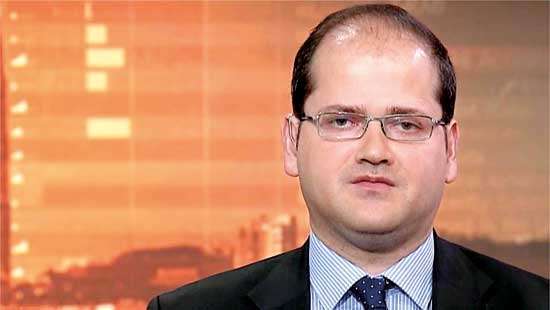Reply To:
Name - Reply Comment

Given the current economic realities, a top fund manager speculated that any political rhetoric on the IMF programme during the election campaign trail in Sri Lanka is likely to tone down
|
Ruchir Desai |
once elections are concluded. “An upcoming election in any country makes investors a bit nervous, but in Sri Lanka’s case, even more so because of the ongoing reforms linked to the IMF programme. A concern among investors is that if a new President or party is elected, this could mean renegotiation of the IMF programme. However, I doubt that this concern will play out in a significant manner,” said AFC Asia Frontier Fund Co-Fund Manager Ruchir Desai who was in Sri Lanka recently.
Following the visit, he acknowledged that local investors are particularly concerned with the upcoming Presidential election scheduled for September-October 2024.
Given the economic balance and geopolitical interests in Sri Lanka, he stressed that any political party that comes to power in the upcoming election does not have room to deviate significantly from the reform path the country has taken.
“Any major deviation from the reform path will be extremely detrimental not only to Sri Lanka’s IMF programme but also to the country’s economic and geopolitical prospects.
I therefore believe that any political rhetoric on the IMF programme will likely be toned down once elections are through, as the economic reality is that the economic reforms should continue and hopefully all the Sri Lankan political parties adapt to this reality,” he said.
Desai stressed that the current economic turnaround should not be interrupted by shortsightedness.
“To put things in context, Sri Lanka has not only had a tough last two years, but it has had a challenging time since 2018, when it went through a political crisis, after which its tourism sector was negatively impacted by the Easter Sunday attack in 2019, followed by the pandemic in 2020/2021 and finally the political crisis in 2022. The country did not really get a chance to see a full recovery as there was some setback every year.
However, despite any upcoming political noise, I believe the ongoing economic momentum and stability will be maintained as Sri Lanka’s macroeconomic recovery has only begun,” he elaborated.
If Sri Lanka can follow through with stable economic growth over the next few years, the country would be positioned to attract inflows from global funds.
“I firmly believe that if Sri Lanka can follow through with a stable economic growth of 3-4 percent over the next few years, investors will reward this consistency, which has been absent for the last five years, by re-rating the Colombo All Share Index further upwards given the attractive valuations of blue-chip companies, lower interest rates, and the prospects for consistent earnings growth,” he said.
Desai advised that Sri Lanka must leverage India’s long-term economic growth by focusing on trade and tourism sectors, similar to how many ASEAN countries benefited from China’s economic growth in the 2000s.
Meanwhile, he was of the view that possible delays in the ongoing external debt restructuring process are unlikely to significantly impact the ongoing economic recovery taking place in the country.
Following his visit to Colombo, Desai noted that the AFC Asia Frontier Fund remains positive on Sri Lanka and has increased the fund’s weight in the country.
(NF)